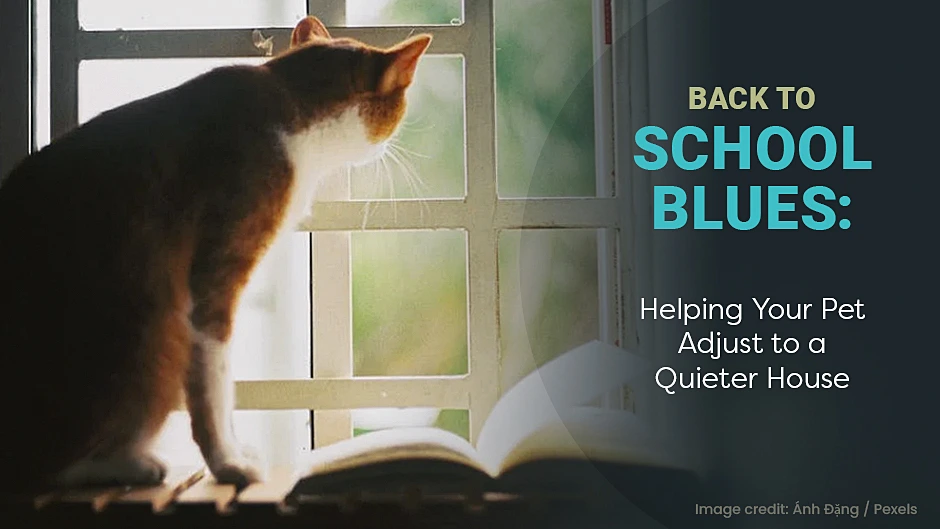Back to school season is an exciting time for kids, but for pets, it can be the source of anxiety and stress. After a summer filled with playtime, cuddles, and attention, the sudden decrease in activity can have a profound impact on our pets. It’s common for pets to experience separation anxiety when their families head back to work and school, and it’s important for pet owners to recognize the signs and take steps to help their pets adjust. In this blog post, we will discuss some strategies to help your pets ease into a quieter home.
Identifying Signs of Separation Anxiety
Separation anxiety can manifest in many ways, such as excessive barking, digging, chewing, pacing, or inappropriate elimination. Sometimes, the signs are more subtle, and pets can become lethargic, withdrawn, or refuse to eat. If your pet shows signs of separation anxiety, it’s important to recognize the problem and address it promptly.
Why it’s Important not to Scold Your Dog or Cat
Although it’s tempting to scold your pet for may at first appear as “misbehaving”, remember that punishment only worsens anxiety and can cause more stress. Instead, focus on positive reinforcement and reward your pet with treats, toys, or praise for good behavior. Make sure your pet has access to comforting items such as their favorite blanket or toy, and work toward building a strong bond between you and your pet.
Pre-Plan for When School Starts
To help ease the transition, start preparing your pet before school starts. Begin to introduce your new routine by slowly changing your pet’s schedule, so that when your new schedule takes effect the transition will not be as abrupt. Make sure to incorporate a consistent daily routine that includes playtime, walks, and plenty of attention.
Solutions to Help After School Has Begun
Creating Structure for Your Pet
Establishing a regular routine is key when it comes to helping our pets adjust to spending more time alone. Create an environment that is calming and consistent, making sure to give your pet plenty of exercise, playtime, potty breaks, and cuddle sessions throughout the day.
Consider Doggy Daycare
Doggy Daycare can provide socialization and playtime with other dogs, which can be an excellent way to ease anxiety and boredom. If your pet isn’t comfortable in large groups, try a pet sitter who can come to your home to give your pet attention and company.
Increase Mental Stimulation Activities
Boredom is a major contributor to anxiety in pets, so try to incorporate mental stimulation activities into your pet’s daily routine. For example, hide treats around the house, give your pet puzzle feeders, or play games like fetch or tug of war. This can help keep your pet’s mind occupied and reduce feelings of stress and loneliness.
Increase Walking Frequency
Walks provide not only physical exercise but also mental stimulation for pets. If possible, try to take your pet on longer walks before and after work/school to help burn off energy and reduce restlessness. Additionally, walking provides an opportunity for pets to explore their surroundings and expend mental energy. (And, they’ll love spending the extra time with you!)
Make Arrivals and Departures Less Emotional
Since pets pick up on their owners’ emotions, try to make departures and arrivals as low-key as possible. Avoid lengthy goodbyes, and greet your pet calmly when you come home. This can help reduce anxiety and make transitions less stressful.
Book a Visit to See Us
Finally, if your pet is struggling with separation anxiety, please book a visit to see us. Our veterinary team can provide expert advice and recommend appropriate treatment options
Separation anxiety in pets can be a challenging issue to manage, but by recognizing the signs and taking proactive steps, pet owners can help their pet family members adjust to a quieter home. Remember, your pet relies on you for comfort and security, so be patient and offer plenty of love and support. If you’re concerned about your pet’s behavior, book a visit to see us, and we’ll be happy to help.

